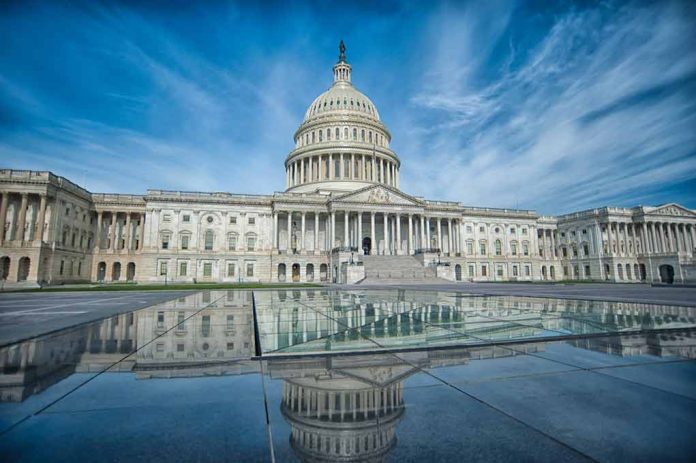
Bias in prosecutorial decisions by U.S. Attorney Matthew Graves has fueled debate over justice and media responsibility in America.
At a Glance
- Matthew Graves aggressively prosecuted January 6 protesters, sparking accusations of bias.
- High crime rates in D.C. were met with a 67% case decline rate by Graves’ office.
- Announced resignation, effective January 16, 2025, amidst criticism and political pressures.
- Implemented strategies that reached 90% prosecution of the “most serious violent crimes.”
Dissecting Matthew Graves’ Prosecution Approach
Matthew Graves’ tenure as U.S. Attorney for the District of Columbia brought significant focus on the January 6 Capitol protests. His office prosecuted over 1,600 defendants involved in the incident. However, this focus came amid criticisms for overlooking rising local crime rates; over 67% of cases in D.C. were declined by his office even as crime rates soared. Comparatively, the San Diego office reported a lower declination rate of 22.6%, raising questions about federal priorities.
Critics further highlighted perceived bias, noting an apparent reluctance to prosecute figures like Hunter Biden. At the same time, Graves faced backlash for pursuing activists like Lauren Handy and Trump supporters. Such actions imply a partisan slant that many argue compromises judicial fairness and raises wider concerns about political influence within the justice system.
That's why we wrote this piece and demanded information from DC US Attorney Matt Graves on whether he takes felons with guns in DC seriously. https://t.co/g4oFfC2rab
— Cully Stimson (@cullystimson) May 14, 2024
Despite criticisms, Graves’ office enacted several initiatives to tackle crime in D.C., reportedly achieving the lowest violent crime levels in over 50 years by 2024. By employing a data-driven method targeting violent offenders, his team aimed to reduce gun violence and drug-related crimes. Furthermore, Graves addressed backlogs in felony cases and forensic challenges exacerbated by the pandemic, stabilizing the justice system’s operations.
“Serving as the U.S. Attorney for the District of Columbia has been the honor of a lifetime” – U.S. Attorney Graves
The office’s endeavors extended to prosecuting national security threats, white-collar crimes, and civil rights violations, indicating a broader legal enforcement spectrum. In pushing for prosecutorial transparency, Graves expanded efforts to provide public data on his office’s activities, including hiring a data scientist for ongoing reporting.
New: The US Attorney in Washington, D.C. has prosecuted more than 1,300 people (and counting) for Jan. 6 — but Matthew Graves declines to prosecute the *majority* of people arrested in D.C. despite high violent crime rates. via @asholiver https://t.co/nVGqjjCldF
— Sarah Bedford (@sarahcbedford) March 13, 2024
Looking Ahead and Analyzing Media’s Role
Matthew Graves announced his resignation, to take effect on January 16, 2025. Bridget M. Fitzpatrick is set to assume the role of Acting U.S. Attorney. The transition raises questions about continuity and future strategies in the face of diverse legal challenges.
“As a career prosecutor, it is incredibly important to me to hold people accountable for their criminal conduct,” Graves told the News4 I-Team.
The media’s portrayal of Graves and his prosecutorial focus also drew scrutiny, amid claims of reinforcing biased narratives. A balanced approach in journalism is essential to ensure that both the legal system’s and media’s transparency and impartiality are maintained, cornerstones of a healthy democracy that respects the rule of law.
Sources
1. More DC arrests prosecuted as US attorney pushes back on criticism
2. United States Attorney Matthew M. Graves to Step Down January 16, 2025




